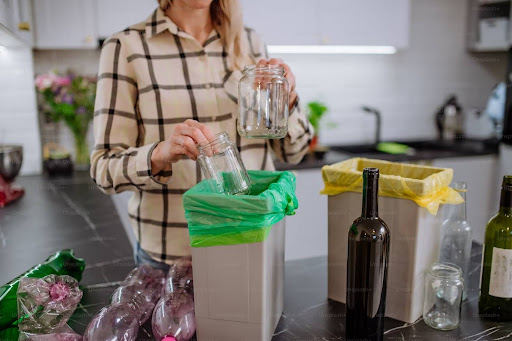What Is Garden Waste and Why Should You Recycle It?

Discover what garden waste is and learn the benefits of recycling it to enhance your garden, reduce waste, and support the environment.
When garden waste is thrown in a landfill, it decomposes without oxygen and creates the greenhouse gas methane. THE GARDEN TRASH SERVICE: By enrolling in the service, you also contribute to a healthier environment, as the trash collected for the garden trash service is made into QUALITY COMPOST instead of being disposed of. This compost is then used for agriculture/ horticulture, which ultimately helps both Mother Earth and nature. Skip Hire Lancashire provides dependable and reasonably priced trash management solutions for residential and commercial applications.
Garden waste cannot be broken into small pieces in an atmosphere of control to be utilized to create high-quality compost if it is disposed of in a landfill with other trash.
Botox Timing: When Will It Start Working?
How Is Garbage From Gardens Recycled?
When garden waste reaches the composting site, any non-compostable material is removed. The remaining trash is then chopped and spread out in a long mound to break down, usually outdoors.
Similar to what happens in a home compost bin, the process at a decomposition plant is actively regulated to expedite it. However, because of the volume of material, the temperature achieved is far greater than that achieved in a typical home compost bin. The maximum temperature is 60°C. Because of the increased temperatures, the bacteria and enzymes can function more quickly, producing completed compost in a matter of weeks.
This substance is turned often to give the desperately needed oxygen to the microorganisms that aid in the material’s decomposition. High heat eliminates dangerous microorganisms, weeds, and plant diseases.

The Advantages of the Environment
Recycling garden debris has various positive effects on the environment.
Cuts Down on Landfill Waste
Everyone can notably cut down on the amount of waste that’s finishing up in landfills by recycling garden waste. Methane, a powerful greenhouse fuel that allows purpose climate change, is produced whilst plant waste breaks down in landfills. By preserving lawn trash out of landfills, we can reduce this terrible environmental effect.
Preserves Resources
Composting permits us to provide nutrient-rich soil that we can make use of to improve our gardens. Utilizing compost lessens the want for synthetic fertilizers, which may be detrimental to the quality of the water and soil. By improving soil moisture retention and decreasing the need for common watering, composting additionally enables keeping water.
Improves the Health of the Soil
Compost is a natural soil additive that enhances soil fertility, shape, and preferred health. It increases the soil’s potential to preserve moisture, lessen erosion, and encourage the development of high-quality microorganisms. By adding compost to our gardens, we may promote biodiversity and establish a flourishing plant ecology.
Cuts Down on Water Pollution
Hazardous contaminants can be released into water and the environment when garden waste is burned or disposed of incorrectly. We can keep these contaminants out of our rivers, save aquatic habitats, and maintain water quality by recycling garbage from gardens through bagging or composting.
Get the Most Out of a Green Bin
If your municipality offers a green bin for garden garbage, make sure to fill it up. Leaves, grass clippings, and small branches are among the waste materials that can be easily disposed of using a green bin. If you fill one regularly, you can ask your council for a second green bin.
Employ a Skip
If you generate a lot of rubbish quickly, renting a skip bin is a fantastic way to get rid of both inorganic and biological garden waste. For large gardens, it is appropriate and environmentally friendly to pay for rubbish to be eliminated, whether in a skip or by a reputable waste cleaning business.
Utilise Composting to Recycle Food Scraps and Garden Waste
One environmentally responsible way to recycle garbage is by composting. Compost and soil components that are easy to use to feed your fruit and flower plants can be made from household and yard garbage. For kitchen scraps, you can make a tiny compost bin. However, you should make a sizable compost container if you wish to recycle combined kitchen and garden garbage.
Every decent garden centre has compost bins. If your garden is big enough, you can also create a compost heap.
The Useful Advantages
Sustainable garden waste recycling has many practical advantages in addition to environmental ones.
Savings on Expenses
By composting your yard garbage, you can also save money on fertilizer, soil amendments, and water. You can save water by building soil moisture retention through your nutrient-rich compost and not have to apply to expensive commercial nutrients.
Enhances the Health of Plants
Mulch or compost in your garden promotes healthy development and reduces the risk of disease by providing plants with a steady flow of essential nutrients. Compost also balances the pH of the soil, making it more conducive to growing a wider variety of plants.
Final Words:
One essential skill that every homeowner should acquire is how to properly and responsibly dispose of yard debris. Knowing how to deal with garden waste is crucial for managing a healthy garden and contributing to a more environmentally friendly planet.

